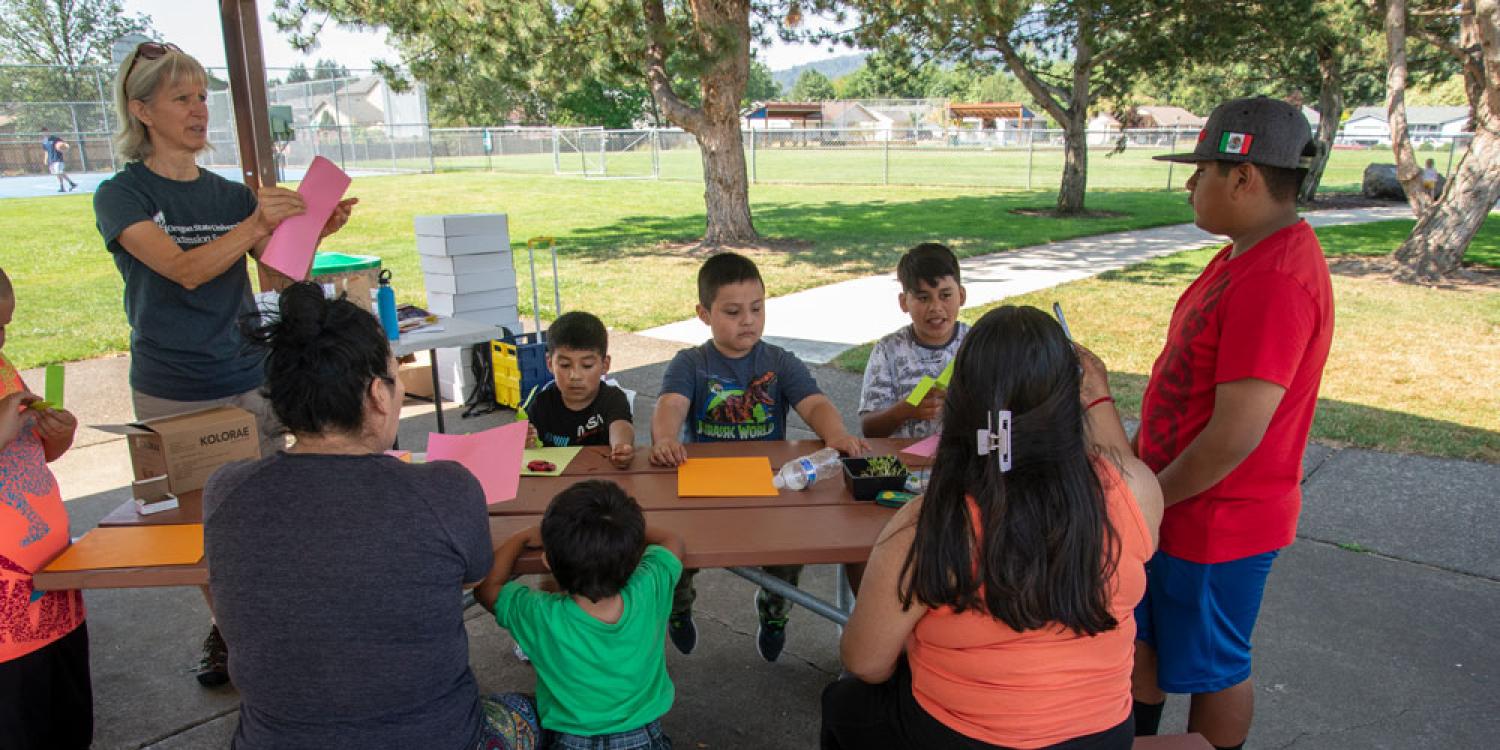
During the 2020-21 school year, most Oregon students were participating in school through distance learning due to the COVID-19 pandemic. Although online learning is an important means to continue education, it often lacks opportunities to engage in hands-on learning at home. This is especially true for families that have difficulty accessing local resources because they are English language learners, the parents work outside the home, or they lack reliable transportation to participate in learning opportunities in the community.
In response to a need for these students to engage in hands-on learning, the Oregon State University Extension Service 4-H Youth Development Program in Benton County partnered on a pilot program with Monroe Elementary School called Monroe 4-H Investigators at Home. The program ran from May to August 2021, engaging families in science, technology engineering art and math (STEAM) activities. It also encouraged active outdoor learning.
Students received a monthly box designed for third- through fifth-grade students with six to seven activities, instructions and all the needed materials to explore hands-on STEAM activities. Students received the boxes in May and June at the school. OSU Extension educators Diana Camacho Figueroa and Jody Einerson delivered the boxes in July and August to the students’ homes.
The instructions for all the materials were in English and Spanish. Camacho Figueroa and Einerson discussed and demonstrated the activities and materials in a virtual un-boxing event each month. Each monthly box had a theme: nature around you, gardening, sky and aviation and properties of water.
Twenty-four students from 15 families participated in the project. In 14 of the families, Spanish is the first language spoken at home.
4-H Investigators at Home returned in 2022, shifting to the east to Lebanon awith four in-person sessions. It drew 15 students in the third through sixth grades. In 13 of the families, Spanish is the first language spoken at home. The in-person sessions succeeded engaging in families. Youths from kindergarten through the eighth grade worked together on the activities with their siblings. Older siblings, parents and even a grandparent attended the sessions with the students.
“We’re trying to bring more STEAM activities to underserved communities,” said Camacho Figueroa, who’s been with Extension for 2½ years and is bilingual in English and Spanish. “I’ve been wanting to do more work in Lebanon, where it can be hard to reach Latino families. This program has been great. We’ve made some good connections.”
As a result of this project, students engaged in activities that supported learning skills in reading (following instructions) writing (science journals), math (graphs and measurements), science exploration and design challenges.